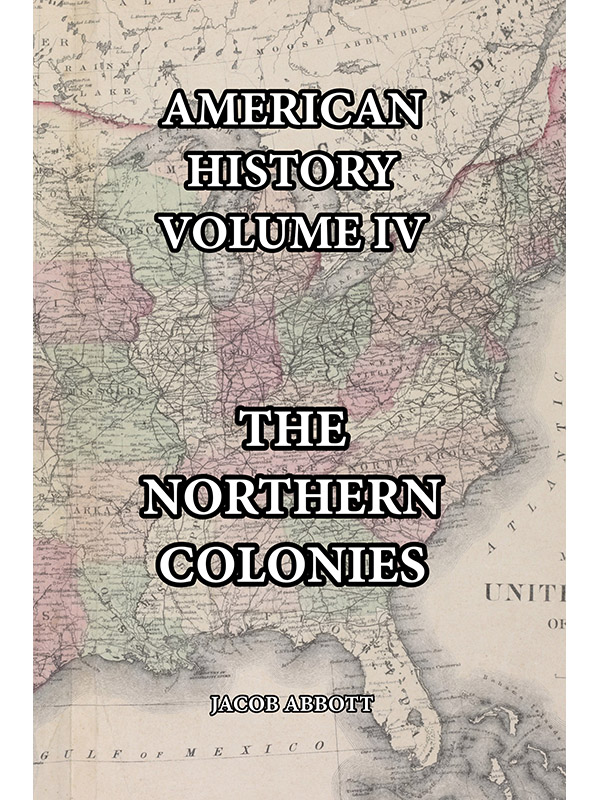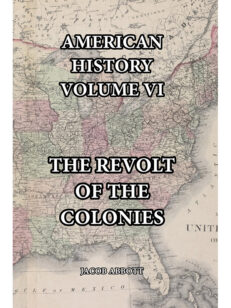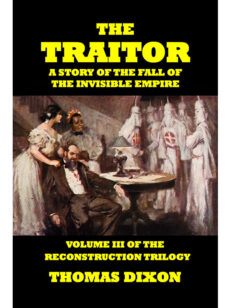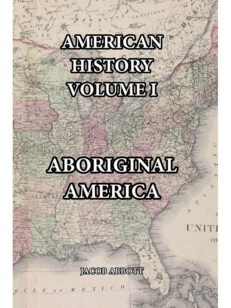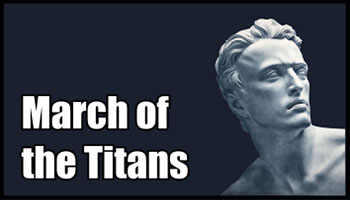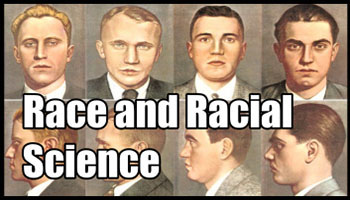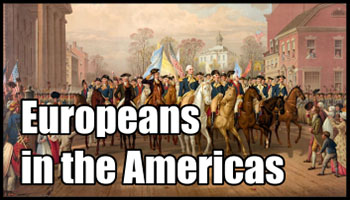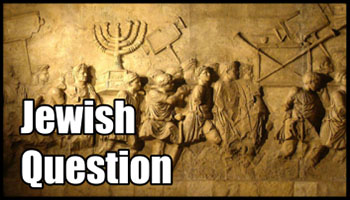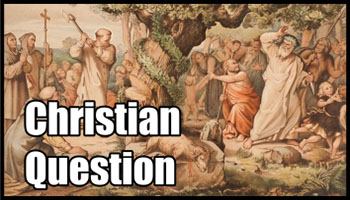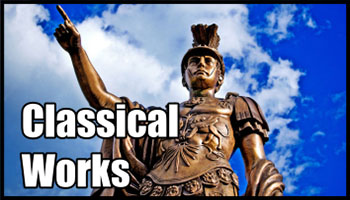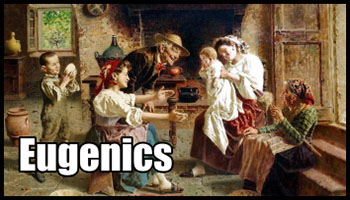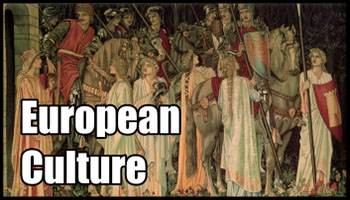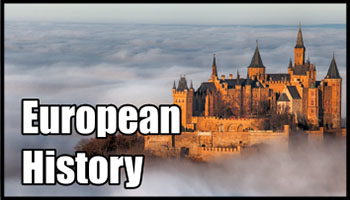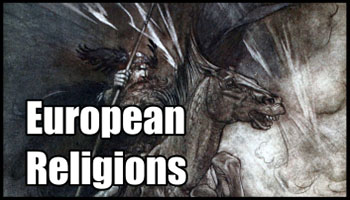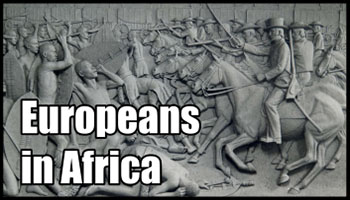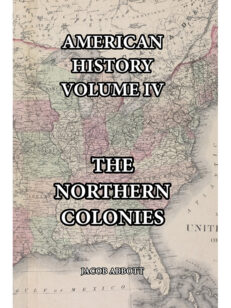Description
By Jacob Abbott. Part four of an eight part series on the history of America from its earliest times through to the age of George Washington, told by master storyteller Jacob Abbott. This volume starts with the 1602 expedition by Bartholomew Gosnold which created the first settlement in what became Massachusetts. Facing immense difficulties, the project struggled for many years before the advent of the religious refugees known as the Puritans, who settled in the Massachusetts Bay Colony and other areas.
The importance of this migration is dwelt on at length by Abbott, who provides many hidden but fascinating details of the trials and tribulations of this highly celebrated group of settlers. The voyage of the Mayflower, the early interactions with the Indians, and the prospering of the colony are recounted in vivid detail.
Next the book moves on to discuss the Dutch founding of the settlement of New Amsterdam—and of its seizure by the English and renaming into New York. It then concludes by recounting the expansion of settlements along the Connecticut River, and the founding of the first colonies in New Haven and Rhode Island.
The overriding theme which the modern reader draws from this work is that of the incredible ingenuity and self-reliance of these early pioneers—cut off from Europe, they had to provide completely for themselves in every facet of life. The story of their survival—and eventual prosperity—is inspiring.
Contents
CHAPTER I: Gosnold
The Twenty-Second of December.—Unsettled Condition of Europe in the Sixteenth Century.—Ideas in Respect to America.—The Expedition Organized.—The Voyage.—The Land.—Visit from the Indians.—Farther Progress Westward.—Passage to the Shore.—The Reconnaissance.—The Name Cape Cod.—Cruising among the Islands.—Appearance of the Country.—Plan of the Proposed Settlement.—Site Selected.—The Work Commenced.—Excursions of Captain Gosnold.—Curiosity of the Indians .—An Alarm for the Building Party.—The Search for Food.—Difficulties.—Abandonment of the Enterprise.—Preparations for the Return to England.—Beginning of Difficulty with the Indians.—Some Advantage Gained
CHAPTER II: The Puritans
The Name Virginia.—Ownership of the Territory.—Plans of the Government.—Various Undertakings of the Two Companies.—In What Sense Pilgrims.—Correlation of Politics and Religion in Respect to Liberty.—The Puritans.—Ideas of King James.—The Conflict.—Scrooby.—The Separatists.—Persecution.—Difficulties and Discouragements.—The Trouble at Boston.—Bradford and His Books.—The Embarkation at Hull.—Detention of the Women and Children.—A Surprise.—Distress of the Men Embarked.—A Storm.—Fate of Those Left Behind.—Final Escape to Holland
CHAPTER III: The Voyage of the Mayflower
Holland.—Danger of Being Drawn into a Quarrel.—Removal to Leyden.—Residence in Leyden.—Brewster.—Danger of the Young Men.—The Resolution to Remove to America.—Application to King James.—Application to the London Company.—The Question of Funds.—A Joint Stock Company Proposed.—Terms of Subscription to the Stock Proposed by the Company.—Terms Insisted on by the Contributors.—Disappointment and Discontent of the Congregation.—The Final Decision.—The Speedwell and the Mayflower.—The Pastor’s Farewell.—The Expedition Sails.—Difficulty with the Speedwell.—The Delay at Dartmouth.—Final Failure of the Speedwell.—Explanations of the Mystery.—The Voyage.—Approaching the Land
CHAPTER IV: Landing at Plymouth
The Harbor.—Explanation of Map.—Condition of the Emigrants.—Important Measure Resolved Upon.—The First Constitution.—Landing on the Cape.—Whales.—A Reconnoitering Party.—The Shallop.—Miles Standish’s Expedition.—Departure of the Expedition.—The Second Day.—Indian Discoveries.—A Treasure Found.—The Third Day.—Expedition in the Shallop.—The Frost.—Embalmed Bodies.—Indian Houses.—Taking a Liberty.—A Debate.—Baby Born.—Sailing of the Second Expedition.—Division of the Party.—A Midnight Alarm.—An Attack by the Indians.—Difficulties and Discouragements
CHAPTER V: First Winter at Plymouth
Condition of the Settlers.—Their Resolution and Fortitude.—The Place of Settlement.—A Storm.—Preparations for Building.—Laying out the Town.—The First Sunday on Shore.—The Fort.—Signs of the Indians.—The Military Company.—Two Men Lost.—The Adventures of the Lost Men.—Alarms of Fire.—Progress of the Sickness.—Relations with the Indians.—The Visit of Samoset.—Samoset a Guest for the Night.—Visit of Massasoit.—The Treaty.—The Prospects Brighten.—Excursions during the Summer.—The Fortune.—The Indian Population.—Bad Men among the Colonists.—The Colony Established
CHAPTER VI: Massasoit and the Indians
Life in the New Settlements.—The Indians Somewhat too Friendly.—Suspicions and Fears.—The Wooden Effigies.—An Embassage Sent to Massasoit.—The Instructions.—An Indian Village.—Interview with Massasoit.—Entertainment of the Embassadors.—The Return of the Embassage.—Lost Boy.—The Billington Family.—Young John Billington’s Gunpowder Affair.—John Billington Lost.—The Bereaved Mother at Cummaquid.—Parley at Nauset.—The Lost Boy Restored.—The Billington Sea.—Friendly Relations with Massasoit.—News of Massasoit’s Sickness.—Dangerous Character of This Mission.—The Journey.—Visit to Conbatant’s Wigwam.—Arrival at Massasoit’s.—The Sachem’s Reception of His Visitors.—Mr. Winslow Delivers His Message.—Mr. Winslow’s Medical Practice.—Mr. Winslow’s Practice Is Extended.—Peace and Prosperity of the Colony
CHAPTER VII: Massachusetts Bay
The Case of Boston.—Fishing Villages.—Religious Motives.—Salem.—The Massachusetts Bay Company.—The Patent.—New Impulse Given to Colonization.—Beginning of Religious Dissension.—Argument in Favor of the Colonists.—The Argument against the Colonists.—The Result.—Transfer of the Charter and Government to America.—John Winthrop.—Articles of Consortship.—Governor Winthrop’s Family.—Winthrop’s Letter to His Wife.—His Son Left Behind.—Passing the Needles.—The Dunkirkers.—Rules and Regulations.—Way of Curing Sick Children.—End of the Voyage.—The New Government.—Spread of the Settlements
CHAPTER VIII: The Dutch on the Hudson
First Rumors of the Dutch Settlement on the Hudson.—The Correspondence.—Visit of De Razier.—Condition of the Town of Plymouth at That Time.—Fort Amsterdam.—Great Prize Captured.—The Patroons.—Failure of the Plan.—Progress of the Colony.—Seizure of the Dutch Governor in England.—Collisions in America.—Trouble with the Indians.—The Weckquaesgeck Indians.—Indian Mode of Redressing a Wrong.—The Indian Boy Performs His Duty.—War.—End of the War
CHAPTER IX: The Conquest of New Netherland
Duration of the Dutch Power.—Rise of the Puritans to Power in England.—Restoration of the Monarchy.—The Monarchy and the Colonies.—The Solicitude of the Government not without Cause.—Measures Adopted by the Government.—Suspicions and Fears of the Bostonians.—Arrival of the Commissioners.—Order of Procedure by the Commissioners.—The News Reaches New Amsterdam.—Preparations for Defense.—Cunning Maneuvering of the English.—False Security.—Arrival of the Squadron.—Feeling of the People of the Colony.—Resolute Conduct of the Governor.—Proceedings of Colonel Nicoll.—A Parley.—Reception of the Summons.—Great Excitement in the Town.—A New Communication.—Excitement among the People.—Farther Negotiations.—Advance of the Ships of War.—Consternation among the Inhabitants.—The Surrender
CHAPTER X: Growth and Extension of the Colonies
The Three Great Centers.—First Knowledge of the Connecticut River.—The Dutch on the Connecticut.—Emigration to the Connecticut from Massachusetts.—Difficulty with the English Proprietors.—Final Establishment of the Colony.—The Colony of New Haven.—Rhode Island.—An Impracticable Man.—Redeeming Traits of Roger Williams’ Character.—Sentence of Banishment.—Flight.—Final Settlement in Rhode Island.—The French in Acadia.—The Central Colonies.—Conclusion
About the author: Jacob Abbott (1803–1879) was a native of the state of Maine who was a professor of mathematics and natural philosophy, a minister, and founder of two schools (the Mount Vernon School for Young Ladies in Boston and the Mount Vernon School for Boys, in New York City). He wrote more than 180 books and became famous for his easy-to-read style of historical storytelling, stripped of the dry dustiness which characterized other texts.
171 pages. Paperback.
The American History Series by Jacob Abbott:
Volume I: Aboriginal America
Volume II: Discovery of America
Volume III: The Southern Colonies
Volume IV: The Northern Colonies
Volume V: Wars of the Colonies
Volume VI: Revolt of the Colonies
Volume VII: War of the Revolution
Volume VIII: George Washington

